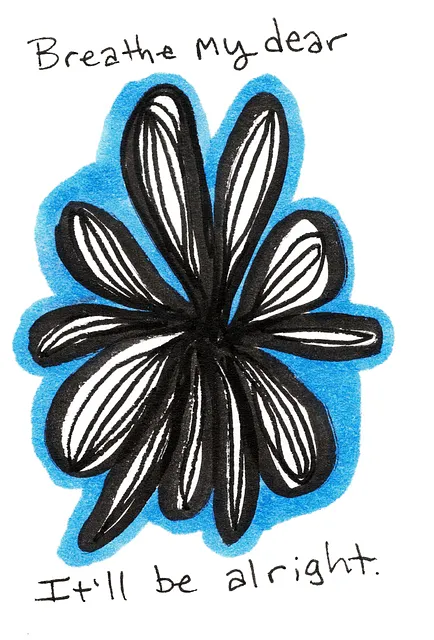Kaiser Permanente Lone Tree prioritizes mental health through understanding community needs, using evidence-based practices like Mind Over Matter and Mental Wellness Journaling, and aligning initiatives with values to create a connected, thriving community. Community outreach programs require tailored approaches, leveraging Kaiser resources, engaging local leaders, and utilizing creative campaigns to break down stigma. Challenges, such as reaching underserved populations, can be overcome with innovative programs like mindfulness workshops for youth, fostering empowerment and belonging.
Community outreach programs play a vital role in fostering holistic well-being, especially in areas like Lone Tree. This article explores how organizations such as Kaiser Permanente are revolutionizing mental health support through targeted initiatives. We delve into understanding local needs, effective program design strategies, and the challenges and success stories that shape these outreach efforts. By examining a case study, we highlight how tailored programs can significantly impact communities, offering a roadmap for sustainable change in terms of Kaiser Permanente’s mental health approach in Lone Tree.
- Understanding Community Needs: Kaiser Permanente's Mental Health Approach
- Program Design: Effective Strategies for Lone Tree Initiatives
- Implementation Challenges and Success Stories: A Case Study Overview
Understanding Community Needs: Kaiser Permanente's Mental Health Approach

At Kaiser Permanente, understanding community needs is a cornerstone of our mental health approach in Lone Tree and beyond. We recognize that mental wellness is deeply interconnected with overall community well-being, encompassing not just individuals but families, schools, and workplaces. Our strategy revolves around empowering folks to take charge of their mental health using evidence-based practices like Mind Over Matter principles. By promoting Mental Wellness Journaling Exercise Guidance, we encourage reflective thinking and self-care strategies that can help mitigate stress and foster resilience.
This holistic perspective extends to our risk assessment processes for mental health professionals, ensuring they are equipped with the latest tools to identify and support individuals in crisis. We believe in building strong, resilient communities where everyone feels valued and supported. By aligning our initiatives with these values, Kaiser Permanente aims to create a sustainable impact that improves the mental wellness landscape in Lone Tree and contributes to a more connected, thriving community.
Program Design: Effective Strategies for Lone Tree Initiatives

When designing community outreach programs like those aimed at mental health awareness in Lone Tree, initiatives should be tailored to address specific needs and cultural nuances of the area. Incorporating Kaiser Permanente mental health resources and expertise can provide a robust foundation for these programs. One effective strategy is to engage local leaders and organizations to ensure the program resonates with the community. Public Awareness Campaigns Development through creative campaigns that spark conversations and foster empathy building strategies are impactful. These initiatives should focus on educating residents about mental health, breaking down stigma, and promoting emotional healing processes within the context of Lone Tree’s unique identity.
Additionally, involving volunteers from diverse backgrounds who can relate to various segments of the community is crucial. This approach helps in tailoring support and understanding to specific groups’ needs. By combining these strategies, outreach programs can be more inclusive, effective, and sustainable, ultimately enhancing mental health support for all residents in Lone Tree.
Implementation Challenges and Success Stories: A Case Study Overview

Implementing community outreach programs, especially those focusing on mental health initiatives, can present unique challenges. One such example is the case of Kaiser Permanente Lone Tree, which embarked on a mission to address the growing need for trauma support services in their region. The primary hurdles included reaching underserved populations and fostering trust within these communities, particularly considering cultural sensitivities and barriers to care.
However, their persistent efforts yielded remarkable success stories. Through innovative programs combining mindfulness meditation and confidence-boosting workshops, Kaiser Permanente Lone Tree successfully engaged with local youth groups and community centers. These initiatives not only provided much-needed Trauma Support Services but also fostered a sense of belonging and empowerment among participants. The program’s positive impact was evident in the increased attendance and enthusiastic feedback from both clients and community leaders.
Community outreach programs, as exemplified by Kaiser Permanente’s mental health initiatives in Lone Tree, play a pivotal role in addressing diverse community needs. By understanding local requirements and employing effective program design strategies, organizations like Kaiser Permanente can overcome implementation challenges and achieve notable success. These efforts not only enhance access to vital services but also foster stronger, healthier communities. Incorporating evidence-based practices and learning from case studies ensures that outreach remains impactful and tailored to the unique needs of each community.






